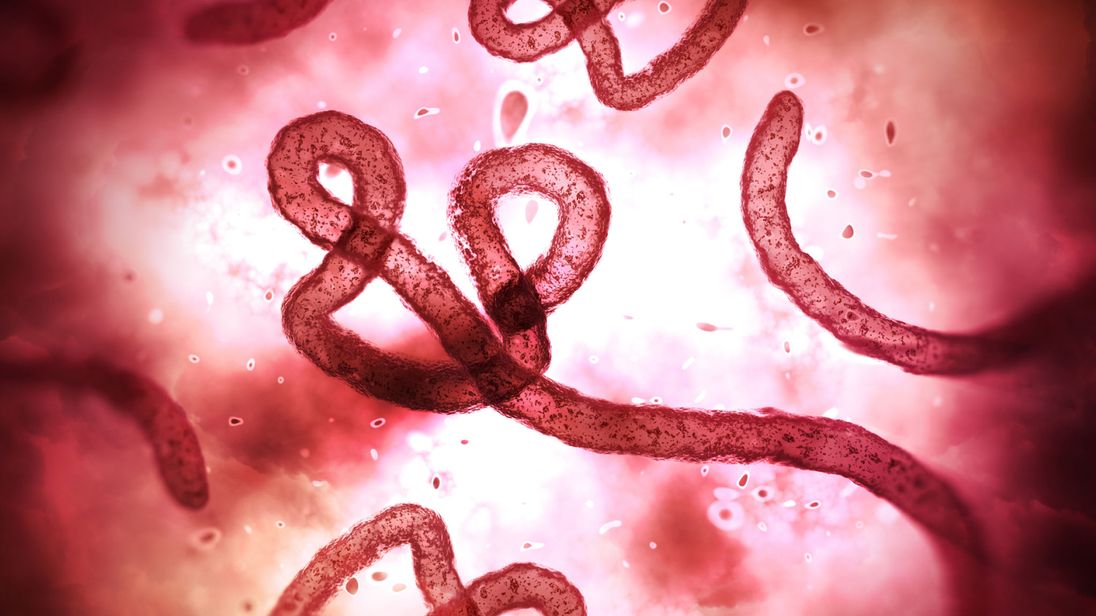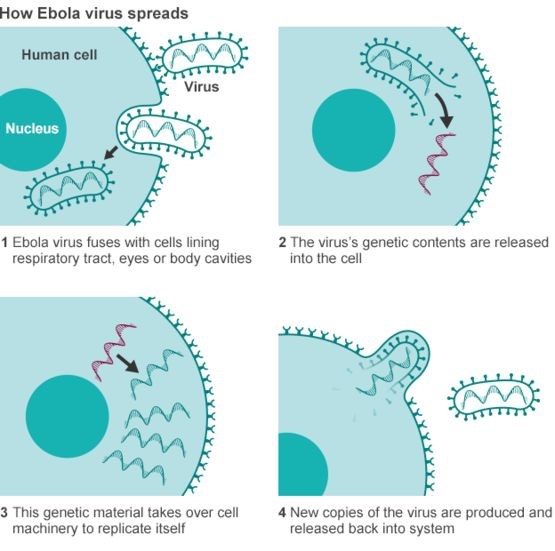Ebola outbreak in DRC
May 9, 2018 | Expert Insights

The Democratic Republic of Congo has confirmed an Ebola outbreak in the north-west town of Bikoro. The last Ebola outbreak in the country in the northern Bas Erle Province in 2017 killed four people.
Background
The Ebola Virus Disease (EVD) is a severe illness in humans. The approximate case fatality rate is 50%. The first outbreaks of Ebola occurred in 1976 in remote Central African villages, near tropical rainforests. The Democratic Republic of Congo was one of the first places where the disease was identified. The small Yambuku village, centre of one of the first outbreaks, is located near the Ebola River, from which the disease gets its name.
It is believed that the disease was introduced to humans due to close contact with infected animals such as gorillas or fruit bats in the rainforest, or through infected bushmeat. Ebola can be spread through human to human transmission. In women who have been infected while pregnant, the virus persists in the foetus. Symptoms of the disease include fever, muscle pain, vomiting, diarrhoea, rash, and symptoms of impaired kidney and liver function.
The Democratic Republic of Congo
The region that is now the DRC was first inhabited about 80,000 years ago. Bantu migration arrived in the region from Nigeria in the 7th century AD. For millennia, the DRC was part of the ancient Kingdom of Congo. The Congo was colonized by Belgiusm from 1908 to 1960. Initial Belgian forays into the Congo were initiated by King Leopold II. Belgium has been highly criticized for atrocities conducted during this time. Conflict and violence has played a major role in the existence of the DRC.
After an uprising by the Congolese people, Belgium surrendered to the independence of Congo in 1960. However, Congo was left unstable because tribal leaders had more power than the central government. The First Congo War, which occurred between 1996 and 1997, was a foreign invasion led by Rwanda, which replaced President Mobutu Sésé Seko with the rebel leader Laurent-Désiré Kabila. The Second Congo War began in August 1998 after the Rwandan genocide of 1994. The war officially ended in July 2003, however violence in the region has continued.
The country’s mineral wealth and economic resources have fuelled violence further as malicious players have tried to get their hands on the nation’s riches. Various groups have taken advantage of the anarchy to plunder natural resources. Violence is stoked by ethnic divisions. A large UN peacekeeping force has been established in the east of the nation in order to keep the militia under control.

Analysis
The health ministry of the Democratic Republic of Congo has confirmed an Ebola outbreak “which constitutes an international public health emergency.” There are two confirmed cases so far. Additionally, there have been 21 suspected cases of viral haemorrhagic fever, including 17 deaths, however, it has not yet been determined whether these cases were Ebola. DRC has seen 9 Ebola outbreaks since the 1970s.
The world saw one of its worst outbreaks of EVD four years ago. According to the WHO, “the 2014–2016 outbreak in West Africa was the largest and most complex Ebola outbreak since the virus was first discovered.” The virus in this outbreak, the Zaire strain, spread to both urban and rural areas. More than 28,600 were infected and 11,000 were killed in West Africa during this period.
"Our top priority is to get to Bikoro to work alongside the government," Peter Salama, Deputy Director-General of Emergency Preparedness and Response said in a statement. "Working with partners and responding early and in a co-ordinated way will be vital to containing this deadly disease." The WHO has implemented an emergency fund of $1 million and deployed 50 experts in the country.
The agency has noted that it will follow a similar strategy as last year, and will work in coordination with local authorities. An early announcement of the outbreak and rapid response activities by local and national health authorities, backed by support from international agencies is the primary strategy to contain outbreaks. One vaccine, called rVSV-ZEBOV, has proved “highly protective” against the virus. It was effective in preventing the spread amongst an experimental group in Guinea in 2015. However, some experts have questioned its efficiency.
Assessment
Our assessment is that all efforts must be made to ensure that the deadly virus is contained. If the Ebola outbreak spreads to eastern reaches of the country, conflict could hinder treatment, and aggravate the spread of the disease. We believe that the study of lethal infectious diseases is a necessity, particularly when these diseases disproportionately affect countries in the developing world.








Comments